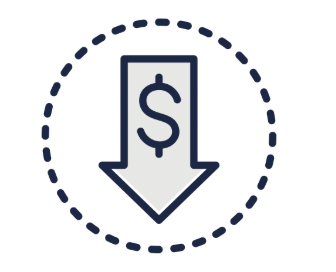In today’s competitive healthcare landscape, businesses are constantly looking for cost-effective ways to offer quality health benefits. Traditional fully insured plans often come with rising premiums, little transparency and no opportunity for cost savings, making it essential for agents to explore alternative solutions. Level-funded health plans have emerged as a leading option, offering employers the cost predictability of a fully insured plan while providing the potential for savings if claims are lower than expected.
As an agent, offering level-funded options is no longer just a value-add-it’s a necessity to remain competitive. With more businesses seeking alternatives to traditional plans and more agents incorporating level-funded solutions into their portfolios, staying informed about these plans ensures you’re meeting client demands and standing out in the industry. Here’s why level funding should be a key part of your group health strategy.
1. Cost Savings and Potential Refunds
One of the biggest advantages of level-funded health plans is the potential for cost savings. Unlike fully insured plans, where premiums are fixed and any unspent funds go straight to the insurance carrier, level-funded plans allow businesses to get money back if their claims are lower than expected.
Employers pay a fixed monthly amount that covers administrative costs, stop-loss insurance and expected claims. At the end of the plan year:
- If claims are lower than anticipated the employer may receive a refund or credit toward future premiums.
- If claims are higher than expected, stop-loss insurance helps protect the business from significant financial losses.
For businesses looking to better manage healthcare expenses, this structure provides an opportunity to reduce costs without sacrificing quality coverage.
2.Transparency in Claims Data
Unlike fully insured plans, where employers have little visibility into their healthcare spending, level-funded plans typically provide aggregate claims reporting. This allows businesses to:
- Monitor overall claims trends, helping them understand healthcare utilization.
- Identify potential cost drivers, such as high prescription drug spending or frequent ER visits.
- Use data to inform benefits strategies, like introducing wellness programs to reduce high-cost claims.
While employers won’t see individual claims details due to HIPPA regulations, the ability to analyze claims data at an aggregate level gives them more control over their healthcare spending. As an agent, helping clients interpret and act on these reports positions you as a valuable strategic advisor.
3.Predictable Monthly Costs with Self-Funded Advantages
A major selling point of level-funded plans is their predictability. Unlike traditional self-funded plans that expose businesses to fluctuating healthcare costs, level funding provides:
- Fixed monthly payments, making budgeting easier.
- Protection against high claims through stop-loss insurance.
- Potential cost savings compared to fully insured plans, especially for healthy employee populations.
This structure offers the best of both worlds – cost control with the potential savings. For small and mid-sized businesses that want to explore self-funding without the financial risk, level-funded plans are an ideal solution.
4.ACA and Tax Advantages
Level-funded plans offer several advantages over fully insured plans when it comes to Affordable Care Act (ACA) regulations and taxes:
- They are exempt from certain ACA taxes, such as the Health Insurance Tax (HIT) and state premium taxes, reducing overall costs.
- They are not subject to community rating rules, which means healthier groups can benefit from lower rates instead of being pooled with higher-risk groups.
By educating clients on these financial benefits, you can help them see why level funding is a smarter alternative to fully insured options.
5.Competitive Advantage for Employers
In today’s job market, offering competitive benefits is crucial for attracting and retaining talent. Many businesses worry tat cutting costs means sacrificing benefits, but level-funded plans allow them to:
- Maintain quality coverage at a lower cost.
- Leverage claims data to support wellness initiatives, such as promoting preventative care or adjusting plan offerings based on employee needs.
- Potentially receive refunds, which can be reinvested into employee benefits.
For employers looking to balance cost savings with a strong benefits package, level funding offers a strategic advantage.
6.Ideal for Small and Mid-Sized Businesses
Level-funded plans were once considered an option only for large companies, but they are now widely available to small and mid-sized businesses – with some carriers offering options to groups as small as 2 employees.
These businesses often struggle with rising healthcare costs in the fully insured market and level funding gives them:
- A cost-effective alternative with potential savings.
- The ability to better manage risk through stop-loss insurance.
- Access to claims data that helps them make smarter healthcare decisions.
With more carriers, like UnitedHealthcare, expanding level-funded options to smaller businesses, agents should be actively discussing these plans with all their clients, not just larger groups.
7.The Market is Shifting – Don’t Get Left Behind
Level-funded plans have exploded in popularity in recent years as employers seek more control, transparency and cost savings. The days when fully insured plans were the default option for all businesses are fading. As an agent, staying ahead of this trend ensures that you:
- Offer modern solutions that meet employer demands.
- Stay competitive against other agents who are already offering level funding.
- Position yourself as a trusted advisor who helps clients make cost-effective healthcare decisions.
If you’re not discussing level-funded plans with your clients, someone else will.
Final Thoughts
Level-funded health plans provide a powerful-solution for employers looking to control costs while maintaining high-quality benefits. As an agent, bringing these options to the table isn’t just about selling insurance – it’s about helping businesses make smarter financial decisions regarding healthcare.
By incorporating level-funded options into your offerings, you’ll be:
- Delivering more value to clients
- Helping employers cut costs and gain transparency
- Differentiating yourself in a competitive market
- Positioning yourself as an expert in modern healthcare solutions


Leave A Comment
You must be logged in to post a comment.